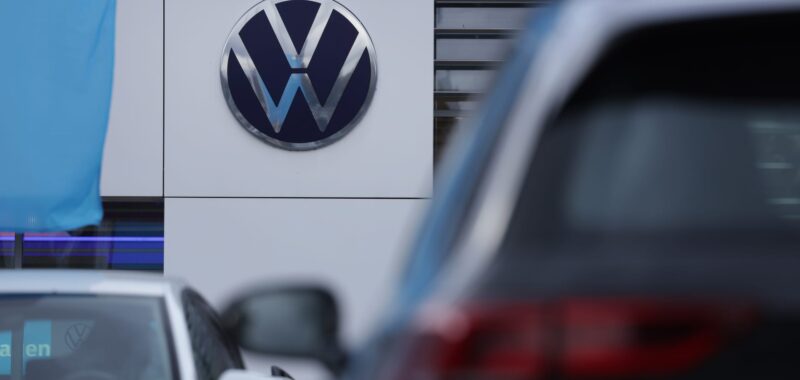Volkswagen is considering widespread pay cuts and layoffs as well as the closure or size reduction of its plants in Germany, the company’s works council said Monday.
Volkswagen management recently presented plans to the council that include a 10% reduction in pay across the board, as well as wage freezes in 2025 and 2026, according to Daniela Cavallo, head of the works council. All factored in, the body estimates workers will suffer pay cuts of around 18% over the period.
Workers with certain collective wage agreements would also lose bonuses and additional payments on employment anniversaries, said the works council, which is made up of a group of elected staff members who represent the interests of a company’s workforce.
Volkswagen also intends to shut three factories and downsize all other plants in Germany, Cavallo said.
“In concrete terms, this means taking out even more products, volumes, shifts and entire assembly lines far beyond to what we have already done,” she said in a statement released Monday. “All German VW plants are affected by this. None of them are safe,” Cavallo added.
She warned that sweeping job cuts were part of carmaker’s plans, noting that tens of thousands of jobs were at risk.
The council further said that Volkswagen was planning to outsource some of its departments to either external companies or to the carmaker’s locations abroad.
Volkswagen woes
Volkswagen management presented its plans to the works council separate from ongoing discussions about labor agreements, the council said. The next round of these talks is set to take place on Wednesday of this week, when Volkswagen is also due to release its latest quarterly earnings.
In a CNBC-translated statement out Monday, Volkswagen said that the overhaul is necessary due to economic conditions.
The automaker would not be able to afford further investments without taking significant steps to regain competitiveness, Volkswagen human resources chief Gunnar Kilian said, adding that restructuring would ensure the company is financially robust in the future.
Thomas Schäfer, chief executive of Volkswagen Passenger Cars, said that the business was not earning enough revenue from its car sales, while energy, material and labor costs have increased. The German factories are not productive enough and are more expensive compared with Volkswagen’s targets and the costs entertained by competitors, he added.
Volkswagen on Monday also said it would be making suggestions to reduce the cost of work during the labor negotiations taking place later this week.
Shares in Volkswagen were last down 1.4% at 12:28 p.m. London time.
Alongside many other German and European car manufacturers, Volkswagen has been struggling amid the shift to electric vehicles and a broader softening global economy. Last month, the company cut its annual outlook for the second time in less than three months, given weaker-than-expected performance from its passenger car division.
In September, the automaker had warned of potential plant closures and said it was scrapping a slew of labor agreements. This includes accords with employees with specialist or leadership positions, temporary workers and apprentices.
The company also said it would end its employment protection agreement, which has been in place for its German workforce since 1994.
The announcements have been met with strong resistance from the works council and top German union IG Metall.
On Monday, Thorsten Gröger, lead negotiator at IG Metall, said that the latest plans from Volkswagen were unacceptable and a “stab in the heart of the hard working VW workforce.”
“Should VW confirm its dystopian way on Wednesday, the board needs to expect corresponding consequences from us,” he said according to a CNBC translation.

